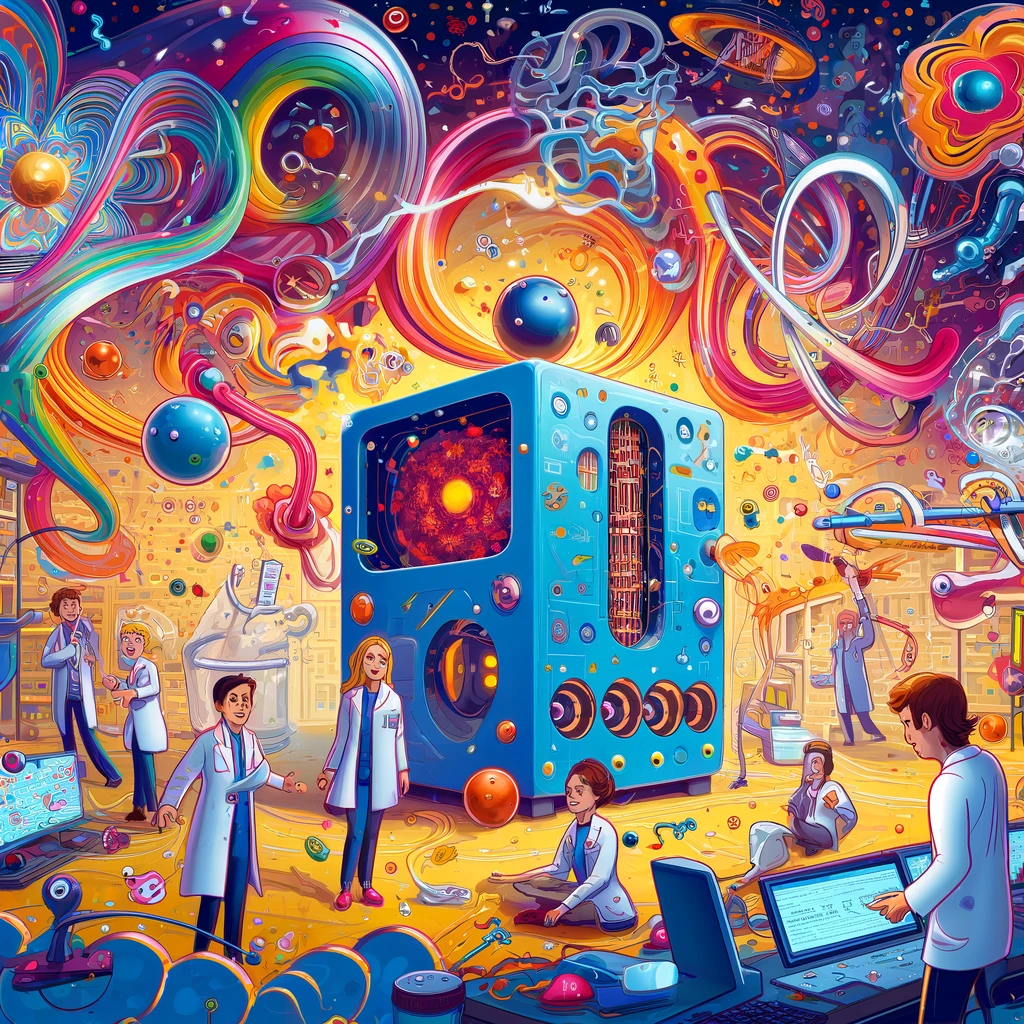The Quirky Quarks of Quantum Computing: Revolutionizing the Tech Universe
Hello, digital universe explorers! Buckle up as we dive into the wonderfully weird world of quantum computing—a realm where classical physics takes a back seat and the rules of the quantum world reign supreme. If you thought your latest smartphone was the pinnacle of technological advancement, hold onto your hats because quantum computing is about to flip the tech scene on its head, shake it around a little, and point it towards previously unimaginable possibilities.
Quantum Computing: Not Your Average Beast
First off, let’s break down this beast called quantum computing. Forget everything you know about traditional computing based on bits that exist as zeros or ones. Quantum bits, or qubits, laugh in the face of binary constraints and thrive in their freedom to exist simultaneously as zero and one. It’s like Schrödinger’s cat decided to take up computing—alive, dead, both, neither? Welcome to superposition, folks!
But there’s more! These qubits also indulge in a phenomenon known as entanglement, where pairs of qubits get so cosmically connected that the state of one (whether it’s a zero or a one) instantaneously affects its partner, regardless of the distance between them. It’s the ultimate long-distance relationship!
Why Should You Care?
Now, why should this quantum quirkiness matter to you? Because it’s set to revolutionize everything from cryptography and medicine to tackling complex scientific conundrums like climate change and energy sustainability. Quantum computing promises to crunch data and solve problems at speeds that make today’s most powerful supercomputers look like a retro handheld calculator from the 1980s.
Quantum Leap into Cryptography
Let’s start with cryptography. Quantum computers wield the power to crack codes that are currently considered unbreakable. Your online transactions, encrypted secrets, and even national security measures could be vulnerable unless they evolve alongside quantum technology. But it’s not all doom and gloom; quantum computing also paves the way for ultra-secure communications through quantum encryption—so secure that any attempt at interception causes the data to self-destruct. Very “Mission: Impossible.”
Medicine and Material Science Get a Quantum Boost
In medicine, quantum computing allows us to model complex molecules at an atomic level like never before. This could revolutionize drug discovery by making the process faster, cheaper, and more effective. Imagine finding the perfect drug to treat a specific condition without the guesswork involved in traditional methods.
Material science, too, stands to benefit immensely. Quantum computers can simulate materials at the most granular level, helping scientists design new materials with properties tailored for specific uses, like lighter but stronger aircraft materials or more efficient solar panels.
Tackling Climate Change
When it comes to climate change, quantum computers could become our best allies. Their ability to simulate large complex systems enables better climate modeling, predicting extreme weather patterns, and understanding ecological impacts with precision. This means more effective strategies for mitigation and adaptation—hopefully keeping our planet cool enough to sustain future generations of quirky tech enthusiasts.
The Quantum Race Is On
This all sounds fantastic, but where do we stand today? The quantum race is well and truly on, with tech giants like IBM, Google, and Microsoft pouring billions into quantum research. Governments aren’t staying behind either, recognizing the strategic importance of quantum technology in securing economic and national security advantages.
So, What’s the Holdup?
Despite the excitement, quantum computing is still in its infancy. The technology faces significant challenges, including qubit stability—qubits are notoriously shy and don’t like to maintain their quantum state for long (quantum decoherence, anyone?). Plus, cooling these systems to near absolute zero temperatures isn’t exactly practical or cheap.
The software to run these quantum operations is also in developmental stages. We need a new generation of quantum programmers to bring this technology to its full potential. So, if you’re looking for a career change, quantum programming could be your wild card!
The Bottom Line: A Quantum of Solace
As we stand on the brink of this quantum revolution, it’s a mix of excitement and uncertainty. The potentials are vast, almost as vast as the challenges. But isn’t that what makes technology thrilling? Each quantum leap brings us closer to understanding not just the universe and its deepest workings but also to revolutionary applications that were once in the realm of science fiction.
So, while we may not see quantum computers at our local electronics store any time soon, the research and development wheels are turning rapidly. And who knows? In a few decades, we might look back and chuckle at how quaint our classical computers were, tapping away at our quantum devices that are busy solving the world’s problems one superpositioned qubit at a time.
Keep your eyes on this space; the quantum future is unfolding, and it promises to be as quirky as the particles that power it!







